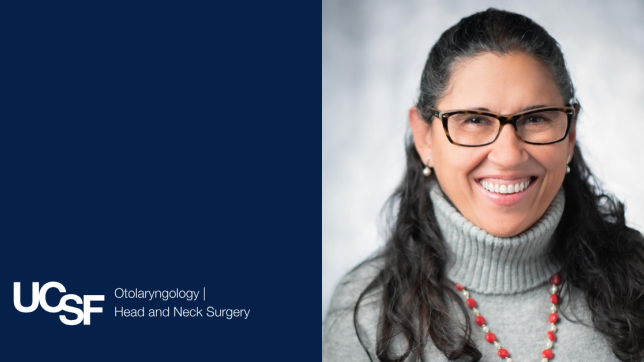
Gender disparities in career advancement in academic medicine continue to exist, even with parity in medical school matriculation. There are a number of explanations for why this gap exists, however little is known about women's experiences of promotion and tenure in academic medicine. A team from UC San Francisco is shining a spotlight on this important topic and have recently published two papers highlighting their work.
The team includes Jennifer Grandis, MD, professor in the UCSF Department of Otolaryngology – Head and Neck Surgery (OHNS); Jacquelyn Callander, MD, UCSF OHNS resident; Marie Murphy, PhD UCSF OHNS analyst and Daniel Dohan, PhD, professor of Health Policy, Surgery, and Social Medicine at UCSF.
A qualitative analysis women's experiences of promotion and tenure in academic medicine
In order to examine women's experiences of promotion and tenure in academic medicine and uncover mechanisms associated with the gender disparity in career advancement, the team conducted 52 in-depth, semi structured interviews with women academic medicine faculty members drawn from 16 medical schools across the U.S. with a purposive sampling strategy to seek diversity of geography and ownership. From there, they analyzed interview transcripts using qualitative thematic analysis and performed data analysis.
"We were able to identify our main themes within participants' experiences of promotion and tenure pertaining to gender inequities," said Dr. Grandis. "These were 1) ambiguous or inconsistent criteria for promotion or tenure, 2) lack of standard processes for reviewing applications and decision making, 3) vulnerability to malicious behavior of senior faculty, department chairs, and division chiefs and 4) women noting men have different experiences of advancement."
Findings were published in JAMA Network Open.
A qualitative study of mentoring relationships and gender inequities in academic medicine
The team also conducted in-depth, semi structured interviews with 52 women and 52 men medical school faculty members at 16 institutions across the U.S. using purposive sampling to examine how mentoring relationships may reinforce or mitigate gender inequities in academic medicine.
"We developed a coding scheme through iterative analysis of the interview transcripts," says Dr. Murphy. "Then, we coded all interview transcripts with the goal of identifying intersections between mentorship and experiences of and responses to gender inequities."
Their results found four key themes at the intersection of mentoring relationships and gender inequities:
- Both women and men became aware of gender inequities in academic medicine through relationships with women mentors and mentees.
- Both women and men mentors recognized the challenges their female mentees faced and made deliberate efforts to help them navigate an inequitable environment.
- Both women and men mentors modeled work-family balance and created family-friendly environments for their mentees.
- Some women, but no men, reported being sexually harassed by mentors.
Findings were published in Academic Medicine.
"Our study results show that mentoring relationships may be a context in which gender inequities are acknowledged and mitigated, but it also shows that mentoring relationships may be a context in which gender inequities, such as sexual harassment, may occur," says Dr. Grandis. "We know that sexual harassment in academic medicine has been widely documented, and studies have found persistent gender inequity in academic medicine has proved persistent. So, while mentoring relationships have the potential to identify and mitigate gender inequities, findings suggest that this potential remains largely unrealized."




